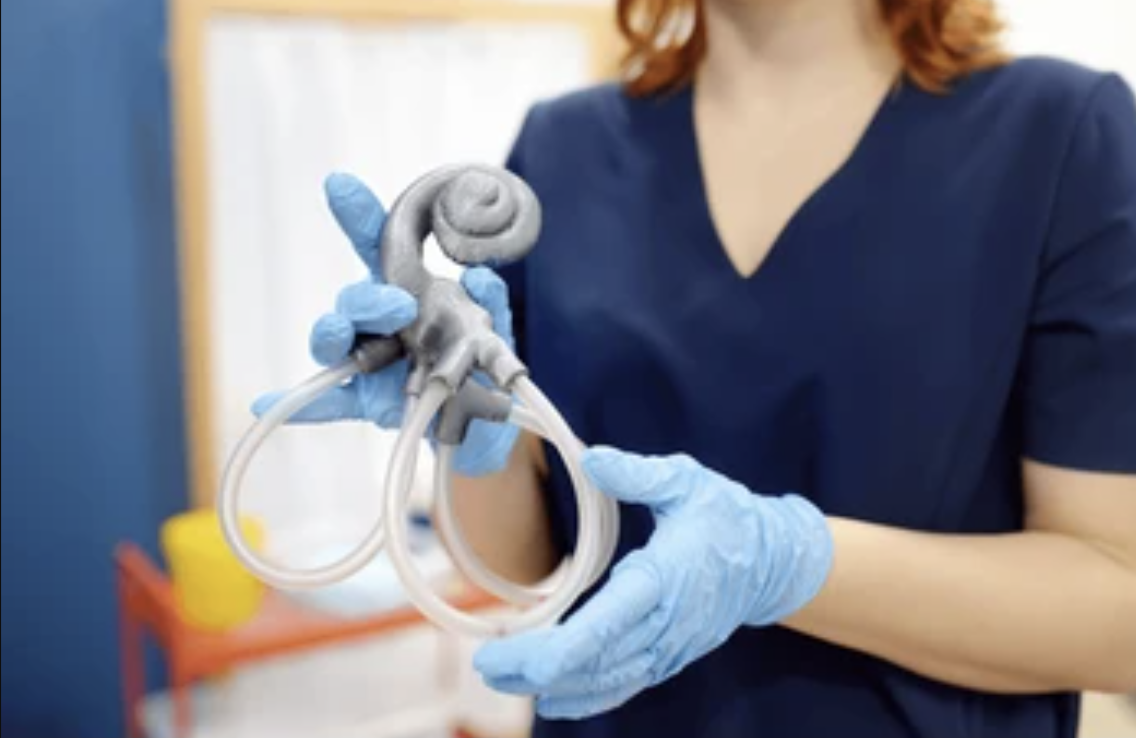HEARING ASSOCIATES
Balance
Helping With Your Balance Challenges
Your ears do more than make it possible to hear. They are a critical part of helping you to maintain your balance. Although you can see and feel changes in terrain or slight movement beneath your feet, such as on the bus, subway, or an escalator, without the complex labyrinth located in your inner ear, you would fail to keep yourself upright, which could lead to significant injuries.
How Do We Balance Ourselves?
Our inner ear is home to the semicircular canals, the otolithic organs, and the cochlea. While the cochlea is used for hearing, the semicircular canals, which look like three circular loops, are each responsible for sensing a different type of movement contributing to balance. Like the bubble in a carpenter’s level or plumb, the fluid within these tubes moves and the hair cells sense the movement, transmitting it to our brain, which signals your body to make the proper adjustments.

Symptoms of Balance Issues
When there are problems in the inner ear, you might begin to experience balance problems, dizziness, vertigo, and even nausea. In some instances, you might feel like you are moving when you are sitting still. Some people with inner ear issues struggle to stay upright or get motion sickness even when they are standing still. These issues complicate your capacity to move around or sit up. In some cases, an inner ear issue can produce severe vertigo even while you are lying down.

How Are Hearing Loss and Balance Issues Related to Each Other?
Although not always the case, balance issues can be tied to hearing loss, which is among the reasons Hearing Associates’ audiologists concern themselves with treating balance issues. Not all people with balance issues have a hearing loss and not all individuals with a hearing loss have balance issues, but there are a couple of conditions we treat, which contribute to both.
Common Types of Balance Disorders
Patients with a balance disorder describe feeling as if they are tipping over, spinning, or floating even while standing still. The severity of the symptoms can vary from one person to the next as well as the severity of the condition causing the issue, which can include:
Benign Paroxysmal Positional Vertigo (BPPV)
Benign paroxysmal positional vertigo (BPPV) is a less critical issue related to positional balance; it is quite a common condition.
Labyrinthitis or Vestibular Neuronitis
This is an infection in the inner ear, which presents as swelling or inflammation in the labyrinth structure of your inner ear. Symptoms associated with labyrinthitis typically include hearing loss, tinnitus, vertigo, and nausea. The condition is similar to vestibular neuronitis, but hearing loss is not a symptom of vestibular neuronitis. Both of these conditions can be treated and cured, but severe infections can lead to lasting damage.
Meniere’s disease
Once referred to as Endolymphatic Hydrops, Meniere’s disease is caused by an increase of pressure within the labyrinth. This pressure leads to a loss of hearing, vertigo, and tinnitus. Meniere’s typically affects only one side, although in a few rare cases, it can occur in both ears. There is no cure for Meniere’s disease, although medication therapy is prescribed to help manage it. Patients with Meniere’s are usually able to identify a pressure buildup before an episode of the condition. The good news is that the condition can go away naturally after a few years.
Perilymph Fistula
This condition occurs when fluid from the inner ear leaks into the middle ear. Perilymph Fistula can occur at birth, in relation to a head injury or surgery, be associated with an infection, or after scuba diving.
Additional Causes
Less critical conditions that often cause balance issues include positional vertigo and a leftover sensation of prolonged movement like from a boat or treadmill, referred to as Mal de Debarquement Syndrome (MdDS). Balance issues can also be age related or can also be a side effect of certain medications.
Balance Disorder Treatment
Balance disorder treatments depend upon the cause and severity of the condition. Infections can be treated by antibiotics while Meniere’s disease and other illnesses require other forms of medication.
Most of our patients respond well to vestibular rehabilitation therapy (VRT). VRT is a series of exercises designed to help desensitize their balance system in relation to certain movements, allowing them to move around without triggering their vertigo. Although VRT does not solve all of their problems, it does help prevent falls and makes vertigo easier to live with.

Give Us a Call
If you struggle to maintain your balance or experience periods of vertigo or nausea, which seem to show up out of nowhere, you could be experiencing balance issues related to problems with your inner ear. The audiologists at Hearing Associates are experts in identifying and treating balance issues. To take advantage of our expertise, give us a call to schedule a consultation or balance assessment.
